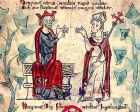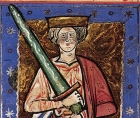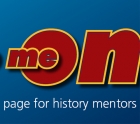Progression & Assessment
Effective planning depends on a strong vision of what it is teachers want their students to know, understand and be able to do at the end of the lesson (term/year/key stage/exam course) that they didn’t know or understand or couldn’t do before. While exam specifications provide some of this vision, many teachers have also looked to the work of historians for models of more powerful historical knowledge and argument. Since responsibility for mapping out progression at Key Stage 3 and developing systems to assess and report it effectively now rests with teachers and schools, this section includes a range of resources illustrating how teachers have developed and implemented such systems. It also includes a number of research articles (on which many of those teachers have also drawn) about common patterns of development in students’ historical thinking. Read more
-

No more mark schemes: manageable and meaningful assessment for Years 7–9
ArticleClick to view -

The role of takeaways in shaping a history curriculum
ArticleClick to view -

Creating a progression model for teaching historical perspectives in Key Stage 3
ArticleClick to view -

What’s The Wisdom On... history assessment?
ArticleClick to view -

Move Me On 168: teaching exam classes
ArticleClick to view -

Cunning Plan 167: teaching the industrial revolution
ArticleClick to view -

Low-stakes testing
ArticleClick to view -

New, Novice or Nervous? 164: Constructing narrative
ArticleClick to view -

Adventures in assessment
ArticleClick to view -

New, Novice or Nervous? 160: Progression in evidential understanding
ArticleClick to view -

Building and assessing historical knowledge on three scales
ArticleClick to view -

Using timelines in assessment
ArticleClick to view -

Securing contextual knowledge in year 10
ArticleClick to view -

Building meaningful models of progression
ArticleClick to view -

Assessment after levels
ArticleClick to view -

Teaching History Curriculum Supplement 2014
ArticleClick to view -

New, Novice or Nervous? 152: Describing Progression
ArticleClick to view -

Knowledge and the Draft NC
ArticleClick to view -

New, Novice or Nervous? 151: Getting beyond bad ‘source work'
ArticleClick to view -

Move Me On 144: Defines GCSE teaching in terms of a diet of practice exam questions
ArticleClick to view

